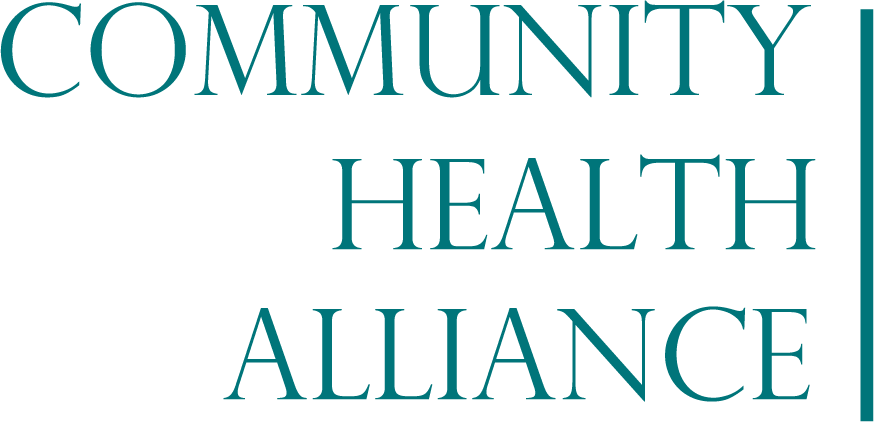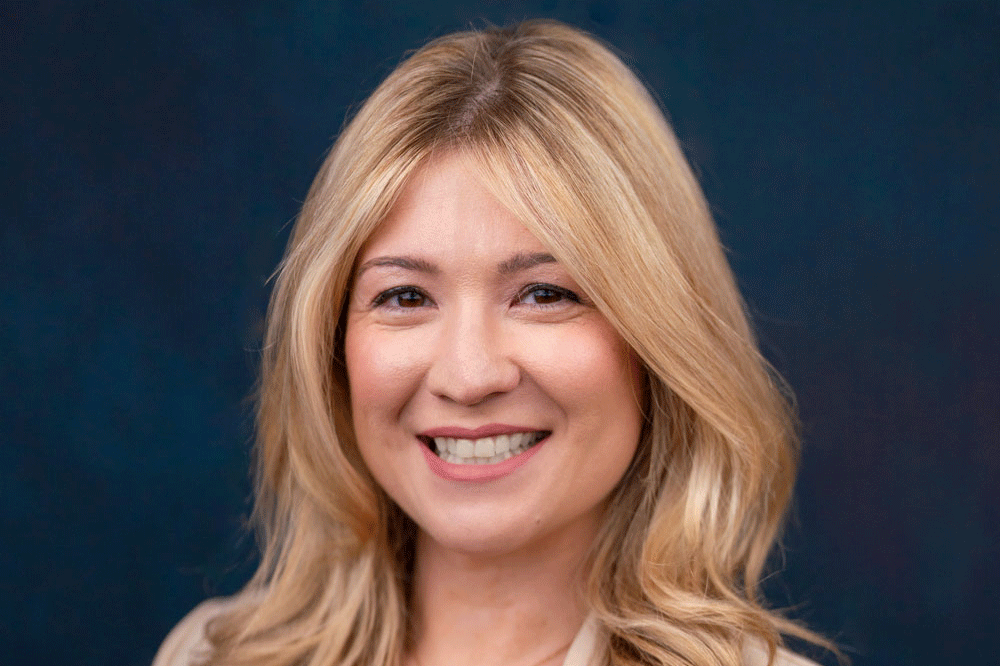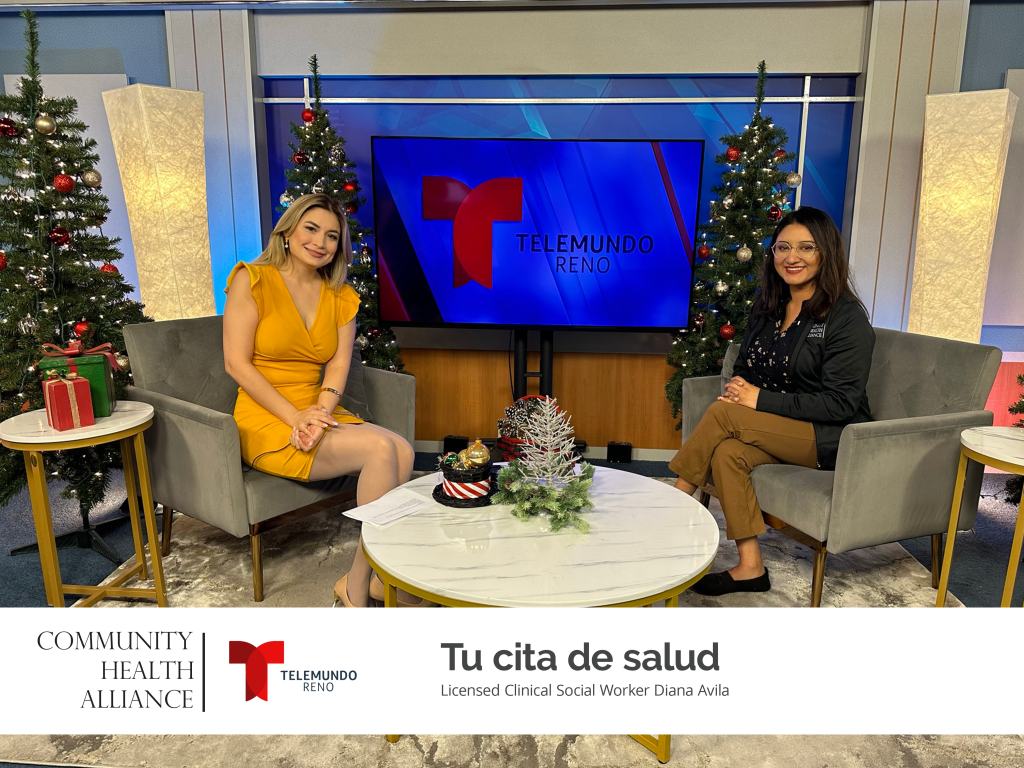Minority Mental Health Awareness Month: Mental Health Stigmas Within Our Communities
July is Minority Mental Health Month
Today we’re going to talk about Minority Mental Health Month that happens in July, but before we get started, my name is Jahahi Mazariego. I am a clinical social worker intern here at Community Health Alliance and I work with anyone who is needing to talk to a behavioral health professional. My cultural background is Salvadorian American. I’m the first in my family to live in the United States. The first in my family to go to school and also the first in my family to openly talk about mental health, and I’m very excited to talk about this topic with you, Jenny. My name is Jenny Ayala, and I’m a licensed clinical social worker here at Community Health Alliance. I work as a behavioral health provider for the pediatric unit, so children and youth are who I focus on. My cultural background is Mexican. Jahahi we have so many things in common. I’m also first-generation everything and the first in my family to seek mental health services and work in mental health.
What is Minority Mental Health Month
We are talking about Minority Mental Health Month and this is a topic that Jenny and I really enjoy talking about, so how do we define minority mental health? Essentially, Minority Mental Health Month happens every July. It is to raise awareness about the mental health experiences within the Black Indigenous people of color communities and others who experience inequities due to systemic barriers. Also, for those who have experienced oppression within these systems and seeking mental health support and other areas like education, etc. Who do we define as more minority, as I mentioned before it’s generally people with racially and culturally diverse backgrounds.
Individuals who are Latino, Asian, Black Indigenous and so on, but it’s also important to know that most people don’t carry just one identity, right. For example, myself, I am a Latina and American, but I am also a woman, too. So I go into this world of those two identities and much more, too. And then we throw in other identities, right. We can throw in gender expression and sexuality, and those bring up other intersections for us. I think one really cool thing about Community Health Alliance is that we have so much diversity here. We walk around the world as the minority, but at Community Health Alliance we feel like the majority. Absolutely!
Common Mental Health Stigmas
With that knowledge and that opportunity to work with individuals with diverse backgrounds, we have the ability to really normalize and say that your identities are valid and your experiences because those identities are real. But it’s true, it could be really challenging. I think at times people who are seeking mental health support think it’s a negative thing, and that’s what I wanted to talk about with you today is the mental health stigmas that we have within our own communities. Mental health stigma is a negative belief for when people are seeking mental health support, and so I am not sure Jenny if you could share one example that you see people struggle with when seeking support. I think the very common one is if you’re seeking support, you’re crazy, right. People only see therapists when they’re crazy.
Another one for women and girls is if they experience a lot of emotions, they’re drama queens. They are just exaggerating the story, and we should just get over it, and I am sure you’ve heard some of these as well. Oh, absolutely! And then I see it on individuals who are males and who are Latinos particularly that are often told growing up that any other emotions are happy or content like you’re angry or like crying that you need to toughen up, and then you need to brush it off and continue, but it’s really hard when there’s something really major sitting on your chest and your emotions, and it’s not easy as brushing it off, right. If you brush it off, you and I wouldn’t be here.
Yeah, and another common one is so funny to me because we are now therapists is “why are you talking to strangers about your problems.” You and I both know like we’re not strangers for long. Absolutely! Even though we share some similar identities as our clients, we have a unique opportunity to really understand just the issues that come around those papers, racial and cultural identities. Some mental health concerns that we see within our communities are issues related to anxiety and depression ensure anxiety and depression can be individual or biological, but it’s also important to know that our environment and our support can also impact the way that we see ourselves in this world. For example, during the social awareness and uprising last summer we saw Black Indigenous people of color face more anxiety and depression because they saw those videos online, and they are really feeling much more difficulty accessing services during the pandemic.
Jenny, I’m not so sure if you are also seeing individuals with different immigration status also face unique barriers, too. Yeah, definitely so I noticed that immigrants, children of immigrants have a really common fear and common anxiety is family separation. A lot of them have already gone through it and fear it happening, so that’s a huge one. Another concern is people that don’t speak English. We have such a need for bilingual therapists. So many of us cannot find therapists that speak our language or that even understand our culture. Absolutely!
How To Combat Mental Health Stigmas
How do we combat these stigmas within our homes and within our own communities? One could be talking openly about our feelings into our family and also friends. Although, that may be a bit challenging because if you’re the only one openly talking about it, it could be really hard to feel as if you are part of this community, right. What other ways can people do to challenge the stigma about mental health? I think for me because I work with children you know really teaching families that you know some of these mental health issues run in the family. So if I am seeing the child I ask the parents “Have you ever gone through this? Have your parents ever gone through this? Are there children in the home or aunts and uncles?” Because we view mental health so differently from physical health, but it’s actually the same thing.
So starting at home and having those conversations about how we feel and when we need help. Absolutely! You make a really good point that you know we think about mental health as being just emotional. Just being emotions, right. But we got to feel it physically, too. So it’s really seeking support and know that you may feel alone when asking for mental health support, but you are not the only one who is needing it and this is why we have multiple behavioral health providers here at Community Health Alliance. Jenny and I are just two of many.
Final Thoughts
We are also able to provide services in Spanish if anyone who does need it, so don’t hesitate to reach out to us or ask your medical provider to talk to one of the behavioral health providers here at Community Health Alliance. Thank you so much, Jenny, for helping me bring awareness about this very special month. Thank you all!
Sign Up for Our Newsletter
SubscribeSign Up for Our Newsletter
By submitting this form, you are consenting to receive marketing emails from: Community Health Alliance. You can revoke your consent to receive emails at any time by using the SafeUnsubscribe® link, found at the bottom of every email. Emails are serviced by Constant Contact
By submitting this form, you are consenting to receive marketing emails from: Community Health Alliance, 680 S. Rock Blvd, Reno, NV, 89502, https://www.chanevada.org. You can revoke your consent to receive emails at any time by using the SafeUnsubscribe link found at the bottom of every email.


